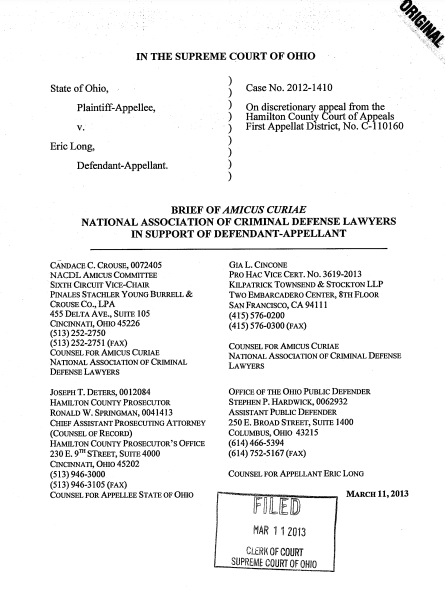
Summary of Argument
The United States Supreme Court has held unequivocally that "youth matters," and that children are categorically different from adults for purposes of criminal sentencing. For this reason, before condemning a child to die in prison by imposing a sentence of life without the possibility of parole, a court is required by the Eighth Amendment to the United States Constitution to consider the child's youth and attendant circumstances as mitigating factors. Miller v. Alabama, 132 S. Ct. 2455 (2012).
Eric Long did not receive that constitutionally mandated treatment. Nothing in the record indicates that the trial judge - who sentenced Eric before Miller was decided, and thus did not have the benefit of the Supreme Court's latest pronouncements regarding the constitutional significance of his youth - considered his age at all. For this reason alone, Eric's sentence should be invalidated.
Moreover, this Court has previously held that Article I, Section 9 of the Ohio Constitution provides unique and independent protection against cruel and unusual punishments, and that children are categorically less culpable than adults. Amicus curiae NACDL urges this Court to vindicate those principles by holding that the Ohio Constitution categorically prohibits imposition of a life without parole sentence on any juvenile offender.